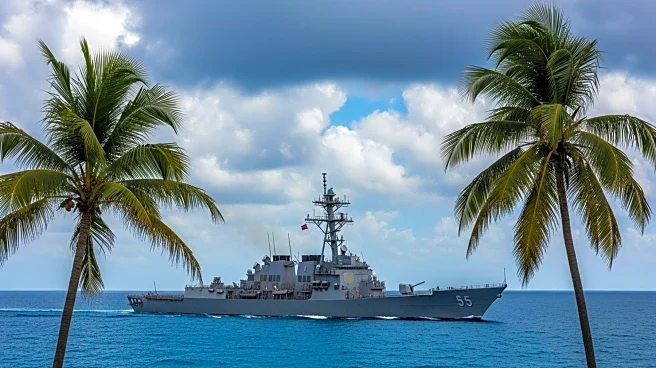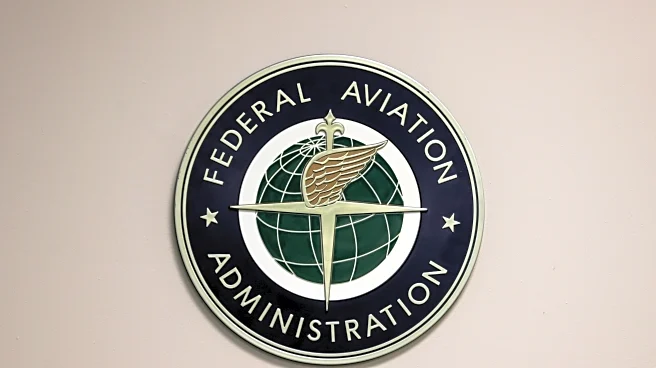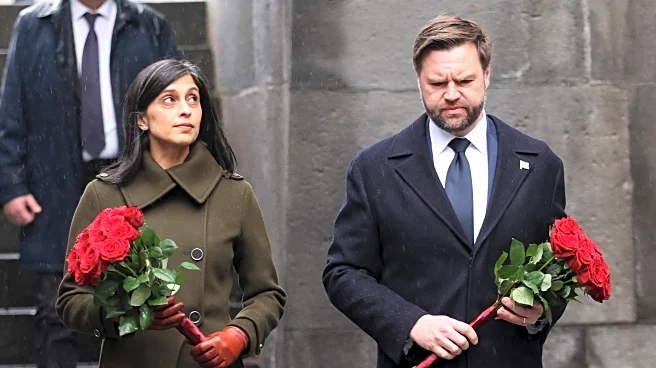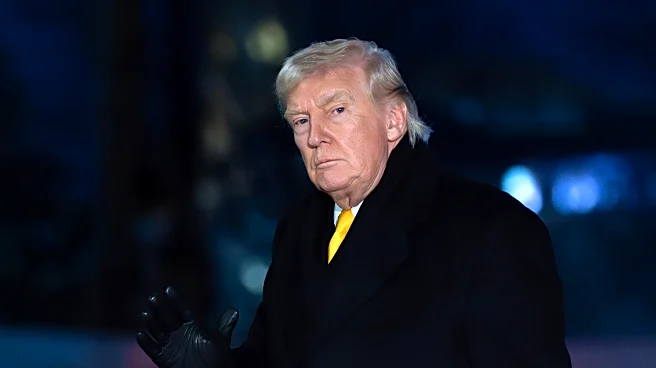What's Happening?
Colombian President Gustavo Petro has raised concerns that a recent U.S. military strike on a boat off the coast of Venezuela may have resulted in the deaths of Colombian citizens. The strike, part of a series of actions by the Trump administration against alleged drug-trafficking vessels, targeted a boat reportedly operated by the Tren de Aragua gang. President Petro indicated there are signs that the last bombed boat was Colombian, although details remain unclear. The U.S. has not identified the individuals aboard the boat, nor provided evidence of drug trafficking activities.
Why It's Important?
The potential involvement of Colombian citizens in the U.S. military strike highlights the complex geopolitical dynamics in the region. It raises questions about the accuracy of intelligence used to justify military actions and the potential for diplomatic fallout between the U.S. and Colombia. The situation underscores the challenges in addressing transnational crime and the risks of collateral damage in military operations. The incident may strain U.S.-Colombian relations and prompt calls for greater transparency and accountability in military engagements.
What's Next?
Colombian authorities may seek further information and clarification from the U.S. regarding the identities of those killed in the strike. Diplomatic discussions could ensue to address concerns over the impact of U.S. military actions on Colombian citizens. The situation may also lead to increased scrutiny of U.S. military operations in the Caribbean and calls for a reassessment of strategies to combat drug trafficking. The Venezuelan government has warned of possible escalation, indicating that regional tensions could rise.
Beyond the Headlines
The incident raises ethical questions about the use of military force in drug enforcement operations and the potential for civilian casualties. It highlights the need for careful consideration of the legal and humanitarian implications of such actions. The narrative of combating drug trafficking through military means may overshadow efforts to address the root causes of drug trade and addiction, potentially diverting resources from prevention and treatment initiatives.










